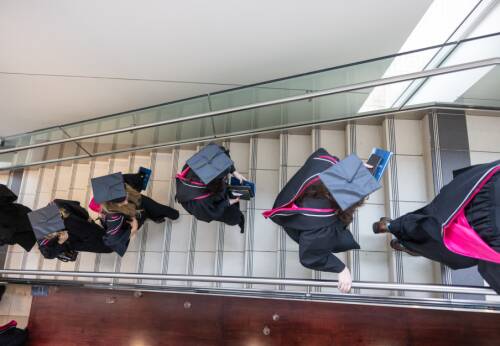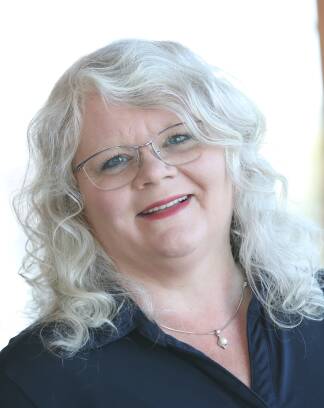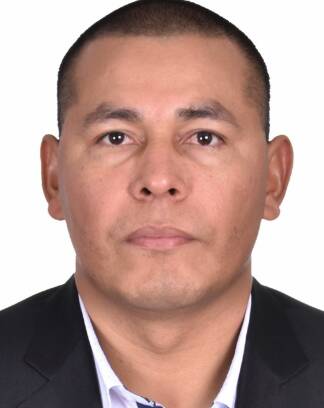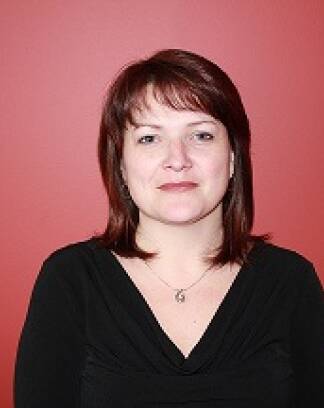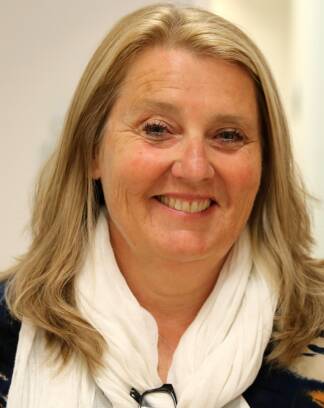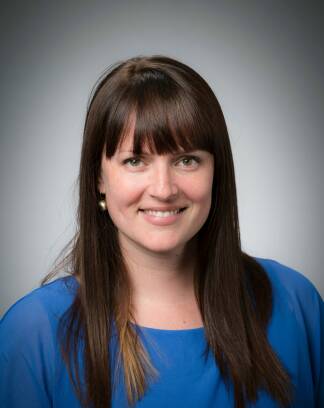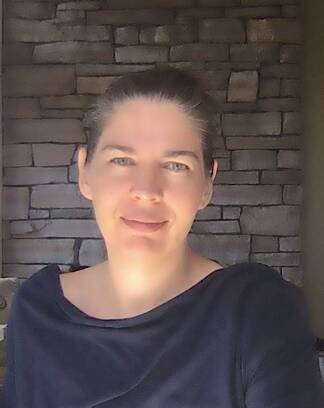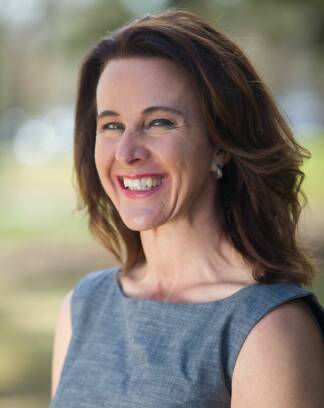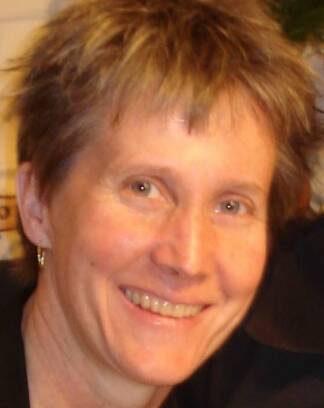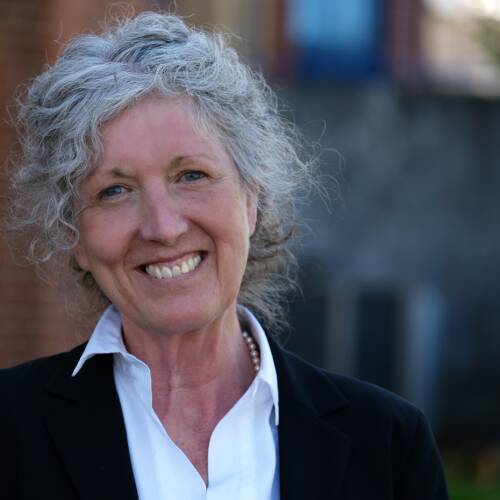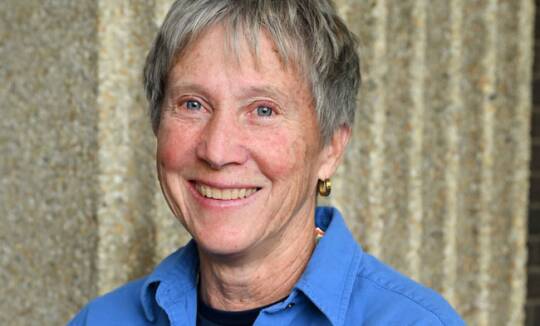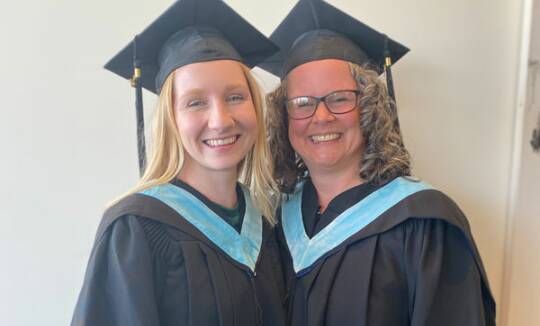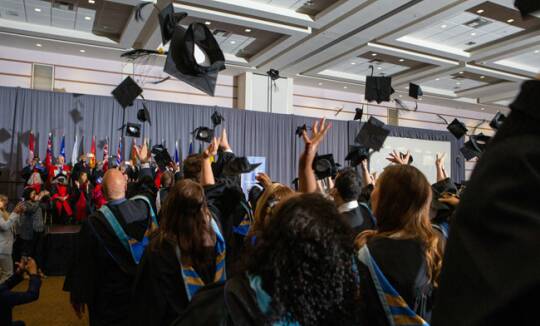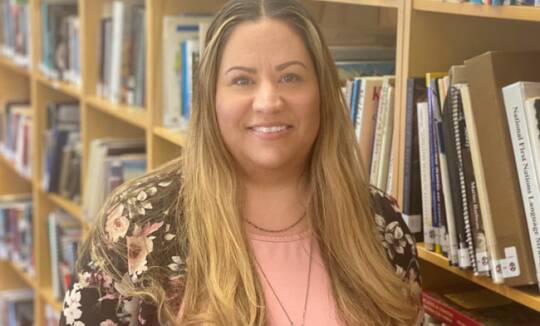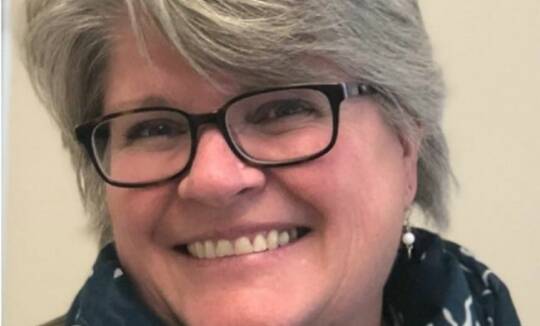
GCE: Teaching & Learning (Online)
Creating Effective and Engaging Educators
The GCE: Teaching and Learning helps skilled professionals become critically reflective educators who are prepared to enhance the adult learning experience in individual or group settings.
Designed for educators with advanced skills or trades backgrounds, the program provides practical approaches to program development, pedagogical strategy, and assessment and evaluation.
Graduates of the GCE: Teaching and Learning are efficient, effective, and engaging educators, well-versed in areas such as teaching styles, creating motivating learning environments, ethical concerns in teaching adults, and the use of technologies for teaching and learning.
18
Students per class
100
%
Online and Asynchronous
New Term Starts Soon
Starts:
September
Campus:
Fully Online
Duration:
As few as 10.5 months*
*With full course load, year-round study and/or approved transfer credits. Contact an Admissions Advisor for more information.
Program Benefits
Career Outcomes
The GCE: Teaching and Learning develops the general pedagogical and functional aspects of a new instructor, helping you become an efficient, effective, and engaging educator in areas such as:
Community and trades colleges
Polytechnics
LINC settings
Community-based education
Just-in-time training in public, private, and not for profit
Healthcare
Training and Development Officers (TDO) in the Canadian Armed Forces
Learning and Development staff in public, private, and not for profit
Human Resource Professionals
Faculty
Meet the Dean

Tim Goddard
M.S.M., Ph.D. Interim Dean
Professor Goddard is the Interim Dean of the Faculty of Education at Yorkville University. He has extensive expertise in university administration and governance, including Vice Provost (International) at the University of Calgary and Dean of Education at UPEI. He served on the Board of Directors of both the Federation for the Humanities and Social Sciences and the Canadian Society for the Study of Education, and was president of the Canadian Association for the Study of Educational Administration.
Meet the Faculty
Admission Requirements
Yorkville University’s GCE: Teaching and Learning is offered 100% online.
The program is administratively offered out of Fredericton, New Brunswick.
Applicants to the GCE: Teaching and Learning are required to provide the following:
- Official undergraduate transcript and proof of obtainment of a bachelor’s degree*
- Resume and statement of interest
- Detailed course descriptions if applying for transfer credits
- Two letters of reference from professional or academic sources
- Completed online application
- Application fee of $150 (CAD)
*All official transcripts need to be sealed, stamped and sent directly from the issuing institution to our Admissions Services Department for evaluation.
In addition, applicants are required to have:
- A cumulative grade point average (CGPA) in undergraduate study of at least 3.0 on a 4.0 or 4.3 scale, or a GPA of at least 3.0 in the final two years of study. Applicants may be conditionally admitted with a GPA between 2.5 and 2.99 if strength of overall application is sufficient.
Applicants who do not meet the standard admissions requirements may be considered for admission under the Faculty of Education’s Flexible Admissions Policy. Yorkville University reserves the right to refuse admission or ask admitted students to withdraw from the program in special circumstances.
To fill out the details of your reference for admission to our GCE: Teaching and Learning, click here.
English Language Requirements
English is the primary language of instruction at Yorkville University.
Applicants who have obtained a bachelor’s or first professional degree in a language other than English are required to submit confirmation of an official test of ability to work and study in English:
- Proof of obtaining any other degree at the post-secondary education level where the primary language of instruction was English.
- Canadian Academic English Language – Computer edition (CAEL-CE) with a score of at least 70.
- Confirmation of an official Test of English as a Foreign Language (TOEFL) score of 92 (Internet-based version).
- Confirmation of a Canadian Language Benchmark (CLB) overall score of 8 with no component below 8.
- Confirmation of an International English Language Test System (IELTS) overall band score of at least 7.0 with no band below 6.5.
- Confirmation of a Canadian Test of English for Scholars and Trainees (CanTest) with a minimum overall bandwidth of 4.5.
- Confirmation of a score on any other test of English language proficiency that equates to Level C1 or higher of the Common European Framework of Reference for Languages (CEFR).
- Confirmation of a score equivalent to these scores on another test of English language proficiency recognized by and acceptable to the University.
- Confirmation of a Duolingo minimum score of 115.
- Confirmation of Pearson Test of English (PTE) Academic score of 65
Canadian applicants who completed their qualifying bachelor’s degree in French, but completed another post-secondary degree, certificate, or diploma or their secondary education in English, are exempted from the requirement to provide tested confirmation of English language proficiency.
The University reserves the right to refuse admission to any student whose proficiency of English is questionable and to ask any student whose written work is below acceptable standards to withdraw from the program.
Any questions? Please contact an Admissions Advisor.
Tuition and Fees
Total Cost (including Application and Seat Fees) is $11,850*
*Note: Total program cost may be reduced when applying applicable transfer credits. Costs below assumes full program cost without applicable transfer credits applied. The cost does not include textbooks, expendable supplies, equipment, and resource fees. To understand your specific program cost, please speak with an advisor.
- GCE Tuition: $11,700
- Cost per credit: $780
- Program cost includes $300 seat fee and $150 application fee
- $300 Seat Fee is deducted from Student’s first tuition payment
- The academic year of the GCE: Teaching and Learning is comprised of 2.5 academic terms of 15 weeks in length each, beginning in September.
Assuming an average course load, tuition cost per term is $4,680
By selecting to take more or fewer courses per term, costs will be updated accordingly.
A typical course is 3 credits. Students must complete 15 study credits to graduate.
Term
Credits
Cost Per Credit
Fees
1
6
$780
$4,680
2
6
$780
$4,680
3
3
$780
$2,340
TOTAL
15
$780
$11,700
*As of September 2023. Please note that tuition and fees are subject to change.
Tuition Payment and Rate Information
Changes to tuition rates will be announced at least three months before the start of the term to which they apply.
Arrangements for payment of tuition must be made at least two weeks before the start of each term (please see the Academic Schedule for deadlines). Monthly payment arrangements can also be made.
For further information about tuition, fees and payment methods, please contact Yorkville University’s Bursar’s Office at 1-888-886-1882.
Please contact an Admissions Advisor to learn more about financial aid options.
Course Descriptions
Students must complete the 15-credit requirement to graduate by completing the four required courses (Foundations of Adult Education, Program Development and Planning, Assessment and Evaluation in Education, and Becoming a Critically Reflective Educator) and any one of the elective courses. The rigorous curriculum of the GCE: Teaching and Learning includes the following courses:
EDAE6303 | Contexts of Adult Learning
3 Credits (required)
Contexts of Adult Learning introduces students to the contexts of adult education and investigates what it means to be learning in a number of different contexts. The situational aspect of learning will be central to the enquiry and students will take a close look at formal and informal learning, networked learning, experience and game-based learning, community-based learning, learning in communities of practice, and learning in communities of interests. These learning contexts will lead students not only to social movement theory, with a particular focus on the local community, the workplace, the home, the voluntary sector, but also to theories of self-direction and connectivism as might be most obvious in relatively new online learning spaces. Students will explore how the learning and knowledge-generating capacities of such spaces will affect their success.
EDAE6343 | Program Development and Planning
3 Credits (required)
Program Development and Planning provides a theoretical and conceptual foundation in contemporary approaches to program development and planning for adult learners. Students apply newly‐acquired knowledge and skills in designing a program. Topics include: designing and developing programs; assessing needs; setting learning objectives and outcomes; designing instructional plans; and developing evaluation strategies.
EDUC6063 | Assessment and Evaluation in Education
3 Credits (required)
Assessment and Evaluation in Education allows students to explore various diagnostic, formative, and summative methods from both theoretical and practical perspectives. Students will learn how to develop and use assessment to promote student learning within a positive knowledge-curation culture (i.e., classroom, department, working unit, etc.). A focus on how to build efficacious and self-regulated learners through pedagogical assessment strategies that utilize accurate and ethical interpretation will be a focus. Students will also explore and differentiate between assessment and evaluation principles for both individual and program performance. A final culminating learning experience will be to reflect upon an assessment and evaluation architecture that aligns to an area of professional interest.
EDAE6513 | Becoming a Critically Reflective Educator
3 Credits (required)
This course involves the examination of a variety of teaching and facilitating approaches that enhance the adult learning experience in individual or group settings. Topics include: teaching styles; creating motivating learning environments; ethical concerns in teaching adults; guidelines for selecting teaching methods; the use of technologies for teaching; and the assessment of teaching performance.
EDAE6323 | Foundations of Adult Education
3 Credits (elective)
Foundations of Adult Education presents an overview of the major societal purposes of adult education by exploring and examining the conceptual, historical, and philosophical foundations that inform current practices in the field. Students are encouraged to examine the relationship between theory and practice, and to identify their own ideas and practices in relation to these theories and practices.
EDAE6343 | Program Development and Planning
3 Credits (elective)
Program Development and Planning provides a theoretical and conceptual foundation in contemporary approaches to program development and planning for adult learners. Students apply newly‐acquired knowledge and skills in designing a program. Topics include: designing and developing programs; assessing needs; setting learning objectives and outcomes; designing instructional plans; and developing evaluation strategies.
EDAE6373 | Learning and Teaching Online
3 Credits (elective)
Learning and Teaching Online explores the theory underlying the development and application of new interactive educational technologies, how they might fit with instructional design, learning and assessment strategies, and infrastructures. The course provides hands-on experience with a range of learning technologies and enables students to explore the processes of designing, implementing, and critiquing technology-based learning. The course will introduce students to current debates around the concept of openness. By the end of the course, students will have developed the ability to act as creative and critical professionals within the broad field of technology-based learning, teaching, and training.
EDAE6383 | Transformative Learning in Adult Education
3 Credits (elective)
Transformative Learning in Adult Education involves an examination of transformative learning. This course will help students to understand what transformative learning is, distinguish it from other forms of learning, and foster it in their practice. The course will cover five broad areas: history; theory; research; practice; and future perspectives of transformative learning.
EDAE6523 | Adult Education for Sustainability and Global Citizenship
3 Credits (elective)
Adult Education for Sustainability and Global Citizenship is designed to provide students with the knowledge and skills to integrate with depth and creativity the principles of sustainability and global consciousness into classrooms, colleges, and community contexts. Students will explore sustainable development and global citizenship to understand their alignment with adult education theory and practice, in particular affective and dialogic learning, inclusivity, and systemic thinking.
EDAE6533 | Coaching and mentoring in Adult Education
3 Credits (elective)
Coaching and Mentoring in Adult Education will introduce students to coaching and mentoring strategies that they can utilise in their workplaces. Students will learn about the underlying theory as well as explore current models. They will also be encouraged to reflect on what coaching and mentoring strategies may work best for them and their organisation. This course will aid students in helping others toward continuous professional development.
EDUC6003 | Indigenous Perspectives in Canadian Education
3 Credits (elective)
Indigenous Perspectives in Canadian Education introduces students to the history of Indigenous education in Canada, Indigenous pedagogies and epistemologies, decolonization in education, while encouraging students to think about their own roles in reconciliation through the lens of education. Through selected readings, weekly discussions, and assignments, students will develop a greater understanding of the traditional, historical, and contemporary roles of education in the lives of Indigenous peoples in Canada. Because the course readings include studies that draw upon Indigenous or Indigenous-informed methodologies, students will also be introduced to some ways that Indigenous methodologies are used in educational research.
EDUC6013 | Research Methods
3 Credits (elective)
Research in Education familiarizes students with methods of educational research. Its primary focus is to help them understand both quantitative and qualitative research and to acquire the knowledge and skills necessary to read, understand, and critically evaluate published research. Mixed methods and critical approaches are also explored. Research methods, information gathering strategies, and analysis procedures are examined. Students will begin to think about possible topics for their capstone projects.
EDUC6123 | Reflexive Inquiry
3 Credits (elective)
Reflexive Inquiry begins from the notion that our lived experiences inform the ways we come to knowledge just as they influence how we engage with each other and the world. In providing students with an opportunity to examine the space between binaries like theory/practice, self/other, and teacher/learner, this course engages dialogic inquiry to cultivate social consciousness, foster accountability, and support ongoing professional development. Students are offered a range of assessment choices, including traditional academic essay, orality, visual curation, technology-based, and arts-informed evaluation.
EDUC6033 | Action Research
3 Credits (elective)
Action Research provides students with an in-depth study of the action-oriented ways adult educators, teachers and educational leaders can systematically examine their own practices. Emphasis is placed on developing skills related to research focus, project design, information gathering, and interpretation. This course is grounded in reflexive practice.
EDUC6043 | Learning and Organizations
3 Credits (elective)
Learning and Organizations provides an opportunity for students to examine the emergence of the learning organization and explore ways to build sustainable learning dynamics and foster spaces where people flourish. Attention will be given to the ways knowledge management and technology help organizations become learning organizations.
EDUC6063 | Assessment and Evaluation in Education
3 Credits (elective)
Assessment and Evaluation in Education allows students to explore various diagnostic, formative, and summative methods from both theoretical and practical perspectives. Students will learn how to develop and use assessment to promote student learning within a positive knowledge-curation culture (i.e., classroom, department, working unit, etc.). A focus on how to build efficacious and self-regulated learners through pedagogical assessment strategies that utilize accurate and ethical interpretation will be a focus. Students will also explore and differentiate between assessment and evaluation principles for both individual and program performance. A final culminating learning experience will be to reflect upon an assessment and evaluation architecture that aligns to an area of professional interest.
EDEL6173 | Administrators as Leaders
3 Credits (elective)
Administrators as Leaders focuses on developing leadership and managerial skills in school administrators. Particular attention is given to instructional leadership, developing clear, compelling, shared, and supported visions, and encouraging cultures of ongoing learning and professional development.
EDEL6223 | Supervision of Instruction
3 Credits (elective)
Supervision of Instruction introduces students to various institutional settings for instructional supervision as well as supervisory techniques that support professional development.
EDEL6433 | Leadership & Community Engagement
3 Credits (elective)
Leadership and Community Engagement teaches students to engage a range of community stakeholders in ways that benefit all those with vested interests. Identifying leaders as integral to this process, this course focuses on the complexities of community engagement and the various forms this engagement might take. The skills required of successful leaders of community engagement are explicitly connected to critical reflection and thoughtful praxis. Particular attention is given to students developing their own leadership capacity to strengthen professional connections within their K-12 school communities and/or community-based non-profit organizations.
(3 credits) (elective)
EDEL6453 | Leadership in Higher Education
3 Credits (elective)
Leadership in Higher Education encourages students to develop the skills, knowledge, innovative thinking that is required of leaders within various post-secondary contexts. Under the impacts of internationalization and 21st century technological advances, individuals in multi-faceted leadership positions across colleges and universities are being challenged to consider emerging models of leadership and their implications for the design and organization of post- secondary educational environments. The specific areas of leadership in higher education included in this course are: strategic planning; communication, collaboration, and partnership development (within and beyond the institution); leadership commitment to diversity; supporting intellectual curiosity; recruitment, retention, and student support; financial leadership; change leadership and crisis management.
EDEL6463 | Leadership & Online Pedagogies
3 Credits (elective)
Leadership and Online Pedagogies explores the evolution of education in our online, digital world. The online environment is heralding contemporary learning theories and novel pedagogies that allow educators to provide person-centric, socially supported learning. This transition increasingly requires educators to demonstrate a desire to move towards an open, equitable, instructional role in technologically supported contexts. It also requires visionary educational leaders who critically examine their choices for implementation of educational technologies. This course prepares students to be effective leaders and educators in online contexts as they work to advance educative practice, support student engagement, and transform learning.
Related Programs

GCE: Leadership in Social Justice
The GCE: Leadership in Social Justice helps leaders become agents of change by teaching them to develop policies and practices that foster equity, diversity, inclusion, and decolonization (EDID) in their professional contexts.

M.Ed. in Adult Education
Emerge not only as experts in adult learning theory and practice, but also as reflective practitioners capable of making meaningful contributions to the field and the growth of adult learners with our fully online program.

M.Ed. in Educational Leadership specializing in Educational Administration
Become a dynamic and effective leader or school administrator, equipped to champion initiatives, lead departments, and contribute to positive educational change within K-12 settings.
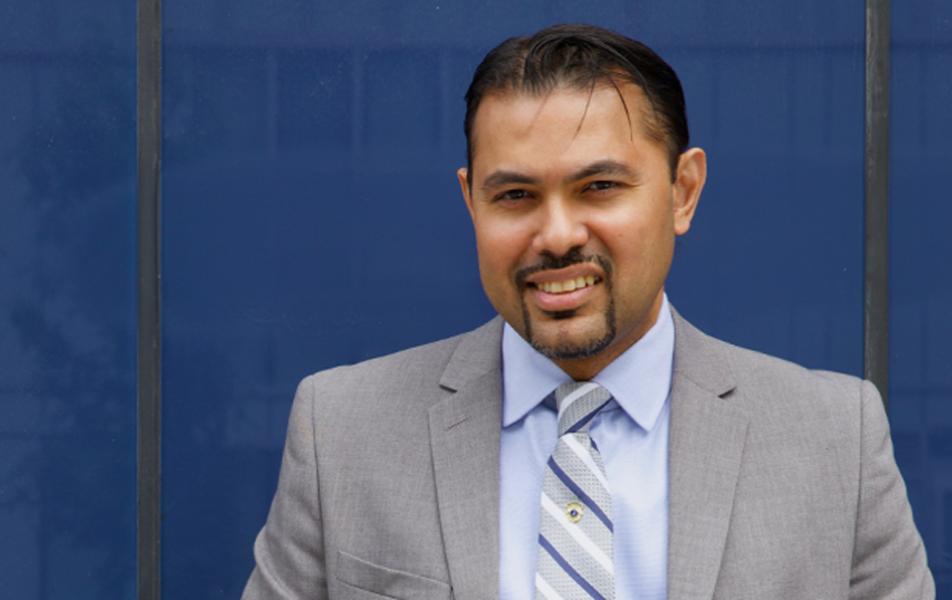
M.Ed. in Educational Leadership specializing in Leadership in Learning
Build a career navigating challenges, championing initiatives, and leading transformative change in post-secondary education, community education, corporate learning and development, and non-profit organizations.
Partnerships
Learn more about Yorkville University’s partnerships and how they can save you money and help you graduate faster.
Articulation Partners
Graduate faster by transferring credits from previously completed programs with one of our articulation partners.
Canadian Forces
Special tuition bursaries and military training credit transfer options are offered to current and former Canadian Forces members and their families.
Testimonials
FAQ
How much does the GCE: Teaching and Learning cost?
Please see here for current tuition rates. Yorkville University is committed to helping you evaluate different financial aid options and payment schedules. Please contact an Admissions Advisor for more information.
How much time will I need to dedicate to each course?
Students can expect to dedicate approximately 16 to 20 hours per week to successfully complete the requirements for each academic course.
What is the application process for the GCE: Teaching and Learning?
Please see here for more information or contact an Admissions Advisor if you have further questions.
Does Yorkville University offer any scholarships?
Yorkville University is committed to helping you evaluate different financial aid options and payment schedules. Please contact an Admissions Advisor for more information.
Can I apply for Canadian provincial student loans?
Only domestic students can apply to Canadian provincial student loan programs such as the Ontario Student Assistance Program (OSAP), New Brunswick Student Loans (NBSL) or StudentAid BC.
Yorkville University is committed to helping you evaluate different financial aid options and payment schedules. Please contact an Admissions Advisor for more information.
What if I have more questions?
If you can’t find your questions addressed on this web page, please contact an Admissions Advisor.





